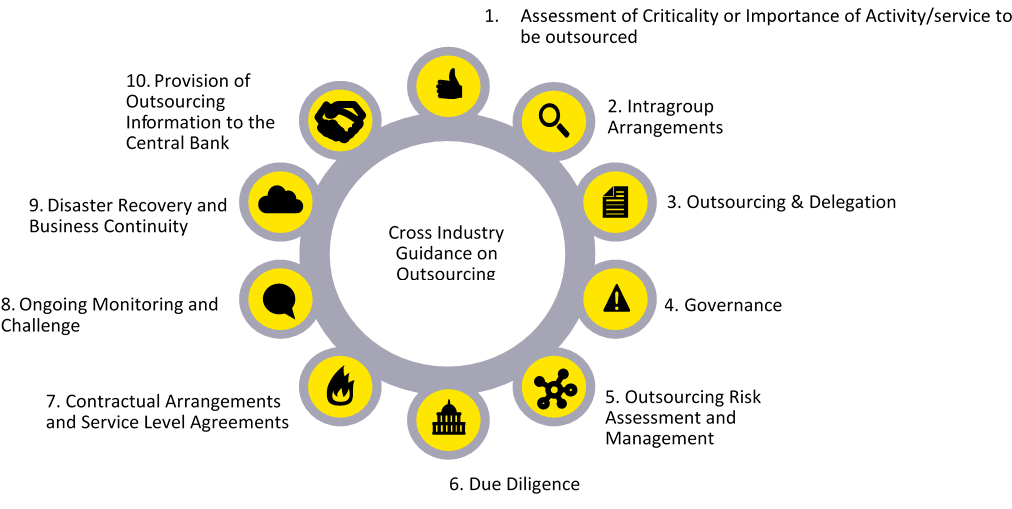Overview
Financial Services firms are increasingly relying on third parties to drive efficiency and cost savings. Managing the risk associated with outsourcing can be challenging and presents a host of unique risks and vulnerabilities that need to be effectively managed. Increased outsourcing is leading to the creation of new service delivery models such as strategic partnering, cross-industry shared service centres, staff sharing and extensive sub-outsourcing.
Against a backdrop of increased regulatory attention to the risks posed from outsourcing, the Central Bank of Ireland (CBI) has issued its own, “Cross Industry Guidance on Outsourcing”. Published in December 2021, the Guidance sets out the expected steps a firm should take to mitigate the risks posed, particularly in the delivery of critical or important business functions. The Guidance builds on existing European directives from the EBA (Banking Sector), EIOPA (Insurance sector), and ESMA (Investments Sector), with the aim of enhancing outsourcing minimum requirements across the industry.
The Guidance does not seek to address in detail, every aspect of a firms’ legal and regulatory obligation as they relate to outsourcing and should be read in conjunction with the other relevant regulations, guidance and standards issued by the European Supervisory Authorities (ESAs) and further guidelines/guidance or bulletins issued by the Central Bank.



